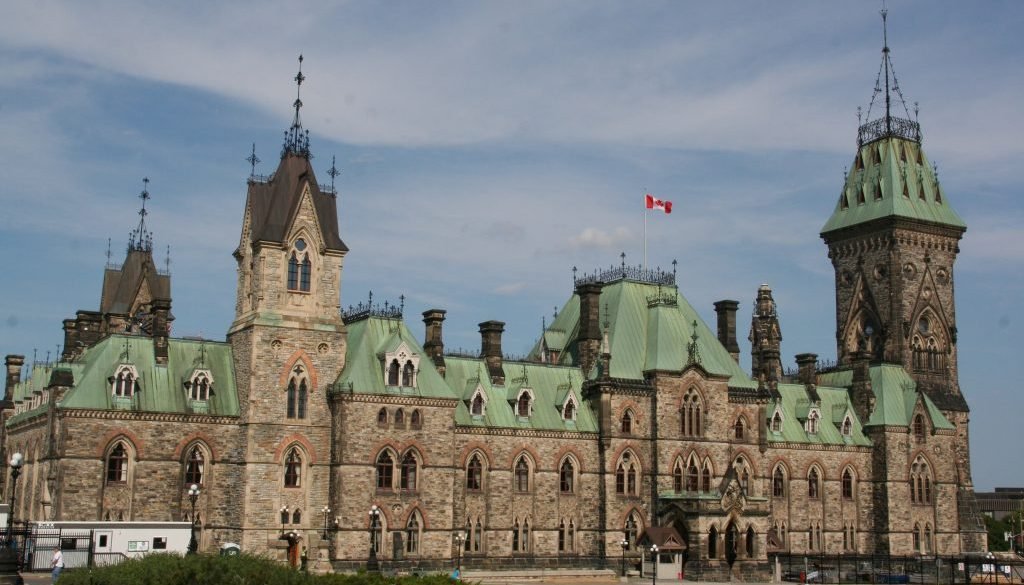Do I Need a Visa for Canada?
Depending on your country of residence, if you want to visit Canada, you may need to apply for a Canadian visa. When you are planning on travelling to Canada, it is essential you have the correct travel documents with you, or you could be turned away at the border. This will ruin any family holiday or business trips you have planned.
Let’s look below at some of the different kinds of visa available for entry to Canada and what kinds of documents various foreign nationals need.
What is a Canada Visa?
A Canada visa is a stamp on your passport which allows you to enter the country of Canada. It is permission for you to travel to the country and legally be able to stay either temporarily or permanently.
Getting a visa to Canada requires the Canadian Consulate or Embassy in your home country to decide whether you are eligible and that you fulfil the requirements for entry. However, once you are at the Canadian border and customs, it is up to the officers at the border to evaluate whether you are fit to enter.
If you answer the Canadian Border Services Officer (BSO) questions honestly and correctly, they will allow you to enter. Otherwise, if they suspect that you are not eligible to enter, they can deny you and ask you to go back to your home country even if you have a Canada visa.
Visa Exemptions
Before we go into the different types of visas, requirements and processes, we should look at which countries are exempt from visas. Countries such as the United Kingdom and the United States, for example, do not need a visa to enter the country when visiting Canada by air.
Passport holders or citizens of these countries either can enter the country with just a passport or national ID. All countries besides the United States citizens will need an electronic travel authorization (eTA Canada.) However, these travellers do not need an eTA if entering by land or sea – for instance driving from the U.S. or coming by bus, train, or boat, including a cruise ship.
Canada Visa Requirements
Canada is one of the most sought after tourist destinations in North America. With a rich multicultural society and natural beauty, it’s easy to see why. Canada welcomed a record number of international tourists in 2017. Statistics Canada says international tourism set an annual record during the Canada 150 (the nation’s 150th birthday) last year, with 20.8 million trips of one or more nights. The overall figure surpasses the previous record of 20.1 million set in 2002.
This means citizens from a vast number of countries want to visit Canada. If you are not a member of the nations which are visa-exempt, then you’re going to have to start thinking about visa applications. All the visas have different requirements depending on the country and visa type. Most applications will just need passports and proof of travel
Types of Canadian Visa and Entry Requirements
To understand what the requirements will be for you, you need to first understand the different visa types and if you fit the criteria. These all have their own requirements and processes which will impact your application. Let’s explore some of the visa types below.
Visitor Visa
This is the most common visa type that foreign nationals apply for. You will need this if you are a tourist or short term traveller who does not feature on the visa-exempt list of countries. A visitor visa (also called a temporary resident visa) is an official document that will be stuck into your passport. It shows that you meet the requirements needed to enter Canada.
The visa is valid for most holders for six months. This is the maximum length of time it can be valid for, but a border services officer may decide it should be valid for less time. They might also give you a document, called a visitor record, which will show the date you need to leave by.
You must meet some basic requirements to get a visitor visa. You must:
- Have a valid travel document e.g Be in good health.
- Have no criminal or immigration-related convictions.
- Convince an immigration officer that you have ties—such as a job, home, financial assets or family—that will take you back to your home country.
- Convince an immigration officer that you will leave Canada at the end of your visit.
- Have enough money for your stay – the amount of money you will need depends on how long you plan to stay and if you will be residing in a hotel, or with friends or relatives.
You can apply for the visa online and will receive a stamp in your passport on arrival. When carrying out your application you will need to send over your biometrics in the form of fingerprints and a photo. This information will be requested after the initial application.
You must pay the biometrics fee when you submit your application. Otherwise, you may experience delays. Get this done as soon as you get the letter asking for your biometrics. You have 30 days to do this from the date on the letter.
Venezuelan passport holders may need to fill out some extra steps when applying for a visa. Contact your local embassy for more information.
Work Visas – Canadian Work Permits
If you are looking to work in Canada, you will need a work permit rather than an eTA or a visitor’s visa. Working in Canada is fairly easy if you have the relevant skills for the job. You can apply both from within the country (if you have the relevant visa prior to application) and outside of it. You can apply online in a similar fashion to the visitor’s visa, where you will submit an application and be requested to provide biometric information afterwards.
The requirements for the work permit will depend on both where you are applying to and where you are applying from. Regardless of this, you must:
- Prove to an officer that you will leave Canada when your work permit expires
- Show that you have enough money to take care of yourself and your family members during your stay in Canada and to return home
- Obey the law and have no record of criminal activity (we may ask you to give us a police clearance certificate),
- Not be a danger to Canada’s security
- Be in good health and have a medical exam, if needed
- Not plan to work for an employer listed with the status “ineligible” on the list of employers who failed to comply with the conditions
- Bot plan to work for an employer who, on a regular basis, offers striptease, erotic dance, escort services or erotic massages, and
- Give the officer any other documents they ask for to prove you can enter the country
Open Work Permit
An open work permit allows you to work for any employer in Canada.
These types of employer are exempt:
- Those listed as ineligible on the list of employers which have failed to comply with the conditions previous work permit conditions
- Those which regularly offer striptease, erotic dance, escort services or erotic massages.
- Note that you can only get an open work permit in specific situations. Find out if you can apply for an open work permit.
Employer-specific work permits
An employer-specific work permit allows you to work according to the conditions on your work permit, which include:
- the name of the employer you can work for
- how long you can work
- the location where you can work (if applicable)
Canadian Student Visas – The Canadian Study Permit
If you are looking to study in Canada, you will need to obtain a Canadian study permit, which serves as a Canadian student visa for the duration of your stay. You do not need a study permit if your course is six months or less, then an eTA or a visitor visa will suffice.
The study permit is a document the government will issue that allows foreign nationals to study at designated learning institutions (DLI) in Canada. Most foreign nationals need a study permit to study in Canada. Make sure you have all the documents you need before you apply. You should apply before you travel to Canada.
A study permit is usually valid for the length of your study program, plus an extra 90 days. The 90 days enable you to prepare to leave Canada or apply to extend your stay. You will need to apply to extend your stay if your course runs over due to resits etc.
One of the great advantages of the study permit is that you can bring your family over with you. This makes adult learning and postgraduate courses incredibly convenient. Alongside this, you are permitted to work 20 hours a week alongside your studies, so it is easy to support yourself while studying.
You can study in Canada if you:
- are enrolled at a designated learning institution (DLI)
- prove you have enough money to pay for your:
- tuition fees
- living expenses for yourself and any family members who come with you to Canada and return transportation for yourself and any family members who come with you to Canada
- obey the law, have no criminal record and get a police certificate (if required)
- are in good health and get a medical exam (if required)
- prove to an officer that you will leave Canada when your study permit expires.
Permanent Residence Visa
A permanent resident is someone who has been given permanent resident status by immigrating to Canada but is not a Canadian citizen. Permanent residents are citizens of other countries.
A person in Canada temporarily, like a student or foreign worker, is not a permanent resident. Therefore, you will need a different kind of visa prior to gaining your permanent resident card. Someone who makes a refugee claim in Canada does not become a permanent resident at that time. To become one, the Immigration and Refugee Board must first approve their claim. Then, they must apply for and obtain permanent resident status.
Visit Canada Today
If you are looking for a short visit and you are on the visa-exempt list, we can provide you with support in the application process. Whether you are a UK Citizen applying for an eTA Canada or an international, we can support you. Get in touch today.




